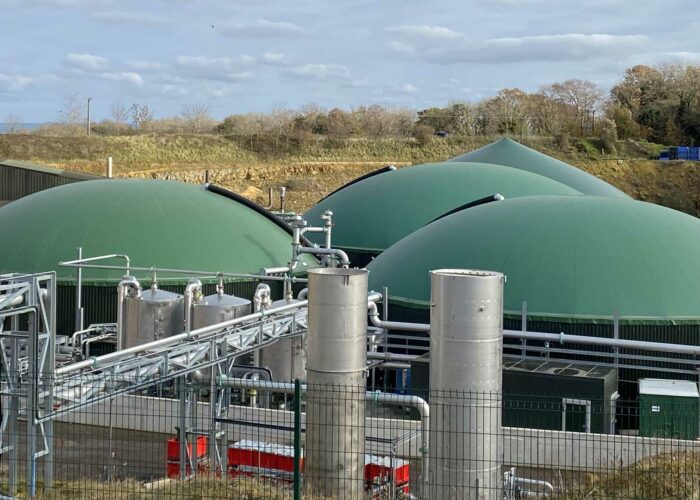The UK has set one of the most ambitious climate change targets in the world. Not only has the government committed to be net zero by 2050 but to also reduce carbon emissions by 78% by 2035 compared to 1990 levels.
Yet soaring energy costs in the coming months could stifle investment in measures that will accelerate decarbonisation. Indeed, the Confederation of British Industry (CBI) warns there is no time to lose, as its latest data reveals the extent to which businesses, are concerned about soaring energy costs.
It says that more than two-thirds of firms (69%) expect their energy costs to increase over the next quarter – with almost a third anticipating rises in excess of 30% – whilst a third expect energy price rises to act as a barrier to growth, by stifling current or planned investment in energy efficiency or net zero measures.
Government support
The CBI believes that with many companies, particularly those in Energy Intensive Industries, already feeling the pinch, further energy price rises could push many to the brink unless urgent action is taken to support them, and their supply chains.
The government has already sought to help businesses weather the storm, through initiatives such as the Super Deduction Tax and extending its Energy Intensive Industries (EII) compensation scheme, in a bid to reduce the burden of ever-increasing energy bills and to stimulate investment in energy efficiency technology.
However, the CBI has called on the new government to act decisively to get a grip on the energy cost crisis, and target businesses that are most in need. It believes a three-point plan will kick-starting an energy efficiency drive that reduces energy demand and boosts the UK’s energy security.
To target support at those firms most in need, the UK Government should:
- Instruct HMRC to replicate Time to Pay flexibility granted during the pandemic to take account of energy price rises
- Launch a publicity drive around the recent extension to the Recovery Loan Scheme and commit to its expansion should evidence show this is needed; preparatory discussions with lenders should begin now, so future decisions can be taken at pace if the situation deteriorates, and further help is needed
To help keep costs down, the UK Government should:
- Announce a business rates freeze now for 2023/24. This would head off a business-as-usual approach that would otherwise see rates increasing with inflation, and piling additional pressures on firms when they can least afford them. (Governments in devolved nations should do the same)
To kick-start an energy efficiency drive to reduce demand, the UK Government should:
- Provide energy efficiency support for the most energy intensive sectors through an expansion to the Industrial Energy Transformation Fund
In announcing its plan, Matthew Fell, CBI Chief Policy Director, said: “While helping struggling consumers remains the number one priority, we can’t afford to lose sight of the fact that many viable businesses are under pressure and could easily tip into distress without action. Firms aren’t asking for a handout. But they do need Autumn to be the moment that government grips the energy cost crisis. Decisive action now will give firms headroom on cashflow and prevent a short-term crunch becoming a longer-term crisis. With firms under pressure not to pass on rising costs, there is a risk that vital business investment is paused or halted entirely. That in turn could pose a real threat to the UK’s economic recovery and Net Zero transition.”
Removing barriers
Further support could be offered to business later this Autumn, but many will be seeking solutions now to help them achieve stability and reduce their emissions without breaking the bank.
As a specialist energy solutions finance company, ee understand that many businesses will be put off taking the necessary steps that will improve their energy resilience and accelerate the pathway to decarbonisationdue to a lack of access to investment funds. But it is vital to remember that not every change has to be complex or costly.
We’re here to help remove the barriers to energy finance. By working closely with customers, we can offer a variety of solutions – from replacing outdated lighting to the implementation of large-scale renewable solutions, EV infrastructures and distributed energy schemes – that make it possible them to maintain their operations, reduce their commercial risks, and remain competitive, without the need for up-front capital outlay.
With our new Prime Minister set to be announced shortly, we cannot be sure when further incentives will be announced. But for those looking to take the first steps, we will continue working with customers and partners to implement low carbon technologies and solutions that help them operate sustainably and responsibly as we continue on the path to net zero.
Capitas Finance specialises in financing energy solutions for carbon-conscious businesses and public sector organisations. Our products and services are designed to help you implement sustainable, low carbon technologies and strategies that accelerate the path to decarbonisation, reduce energy bills and reduce reliance on the grid. To find out how Capitas can work with you, drop us a line here.
Other blogs you may be interested in.




